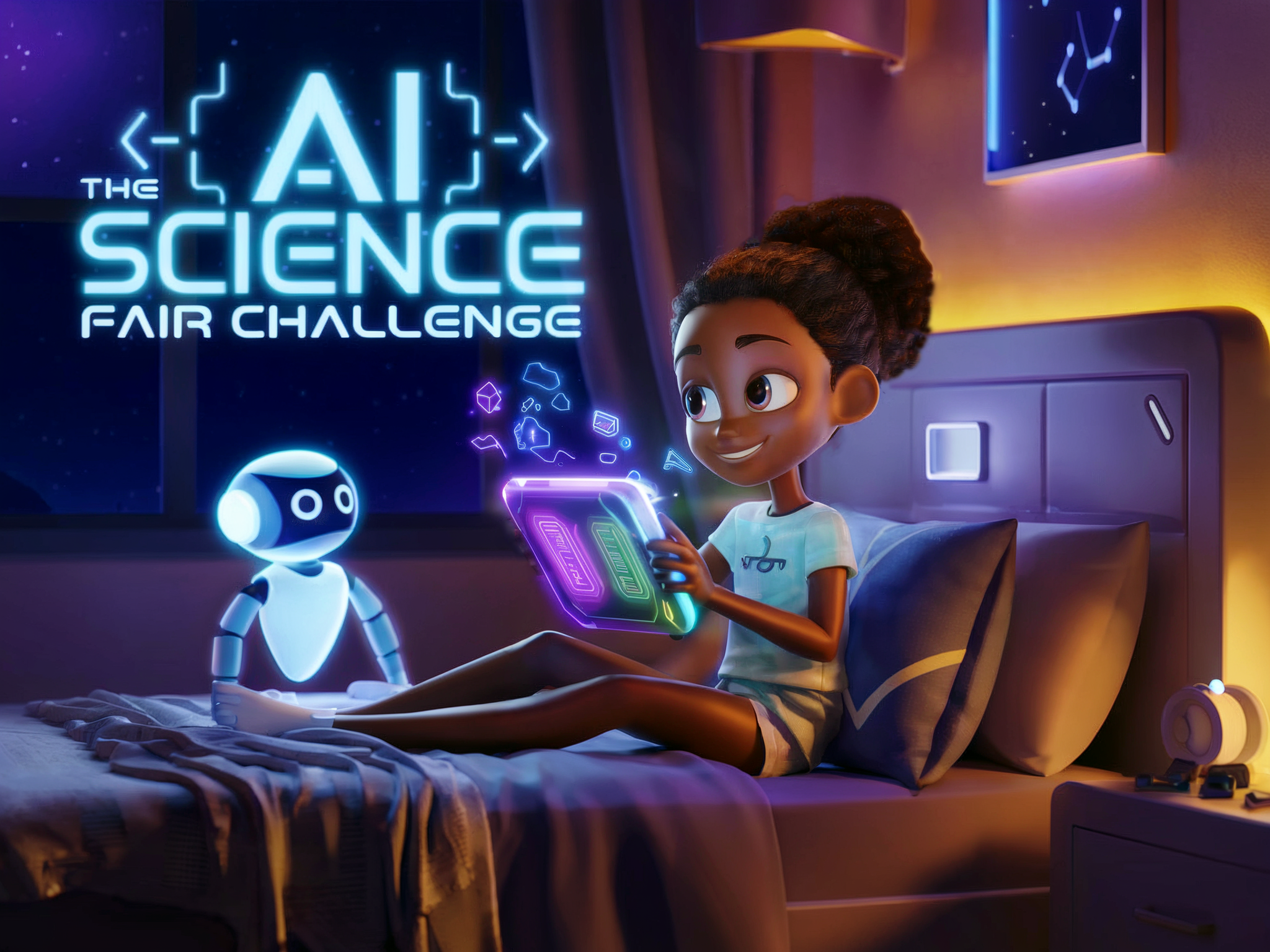
“The AI Science Fair Challenge” is an inspiring bedtime story for tech-curious girls aged 11-12. It follows Amara, a 12-year-old coding enthusiast, as she creates her first AI project for a citywide science fair themed “AI for Good.”
Determined to build an AI math tutor called MathMate, Amara dives into the world of machine learning and adaptive algorithms. The story chronicles her journey, from late-night coding sessions to overcoming a last-minute glitch with help from her best friend Zoe.
As Amara presents her project to the judges, she learns valuable lessons about problem-solving, perseverance, and the potential of AI to make a real difference. The narrative introduces young readers to key AI concepts in an accessible way, while emphasizing the importance of diverse voices in STEM fields.
This engaging tale not only entertains but also educates, offering a glimpse into the exciting world of artificial intelligence and inspiring young girls to pursue their technological dreams. Perfect for budding innovators, “The AI Science Fair Challenge” promises to fill readers’ imaginations with lines of code, neural networks, and endless possibilities.
“The AI Science Fair Challenge”
Twelve-year-old Amara loved nothing more than spending time in her school’s computer lab. While other kids rushed to the playground after classes, Amara could often be found tinkering with code or reading about the latest tech innovations.
One afternoon, as Amara was working on a simple chatbot program, her computer teacher, Ms. Rodriguez, approached with an exciting announcement.
“Amara, I have great news! The city is hosting its first-ever AI Science Fair next month. I think you should enter.”
Amara’s eyes lit up, but then doubt crept in. “But Ms. Rodriguez, I’ve never built a real AI before. My chatbot is just following basic scripts.”
Ms. Rodriguez smiled encouragingly. “That’s why this is perfect for you. It’s a chance to challenge yourself and learn. The theme is ‘AI for Good’ – using artificial intelligence to solve real-world problems.”
Excited but nervous, Amara agreed to enter. That night, she brainstormed ideas, filling her notebook with possibilities. Should she create an AI to help with recycling? Or maybe one to assist elderly people? The options seemed endless.
After days of indecision, inspiration struck while Amara was helping her younger brother with his homework. What if she could create an AI tutor to help kids who struggled with math?
For the next few weeks, Amara devoted every spare moment to her project. She studied machine learning algorithms, natural language processing, and adaptive learning techniques. Her family barely saw her emerge from her room, except for meals and school.
As the fair approached, Amara’s AI tutor, which she named MathMate, was taking shape. It could analyze a student’s answers, identify areas of difficulty, and adjust its teaching style accordingly. But it wasn’t perfect – sometimes it misunderstood questions or gave confusing explanations.
The night before the fair, disaster struck. While running a final test, MathMate crashed, and Amara couldn’t get it to restart. Panicked, she called her best friend, Zoe.
“I can’t fix it! All my work is ruined,” Amara sobbed into the phone.
Zoe, ever practical, replied, “Take a deep breath. Let’s think this through like an AI would – step by step.”
Together, they methodically went through Amara’s code, looking for the bug. After two hours, they found it – a tiny error that was causing the whole system to fail.
“See? We did it!” Zoe cheered. “And you know what? This makes your presentation even better. You can talk about problem-solving and the importance of debugging in AI development.”
The next day at the fair, Amara stood nervously by her booth as judges made their rounds. When they reached her, she took a deep breath and began her presentation.
“MathMate isn’t perfect,” she admitted. “But that’s part of its journey. Just like students learning math, AI systems need to learn from their mistakes to get better.”
She explained how MathMate worked, its potential to help struggling students, and the challenges she faced in creating it. The judges listened intently, asking questions about her coding process and future improvements she envisioned.
As the fair came to a close, Amara felt proud, regardless of the outcome. She had pushed herself, learned so much, and created something that could genuinely help others.
To her amazement, Amara’s project won first prize. But the real reward came weeks later when her school decided to pilot MathMate in some of its classes.
Watching students use her creation, Amara realized that this was just the beginning. There was so much more to learn, so many ways AI could be used to make the world better.
That night, as she drifted off to sleep, Amara’s dreams were filled with lines of code and endless possibilities. She couldn’t wait to see what she would create next.
The end.